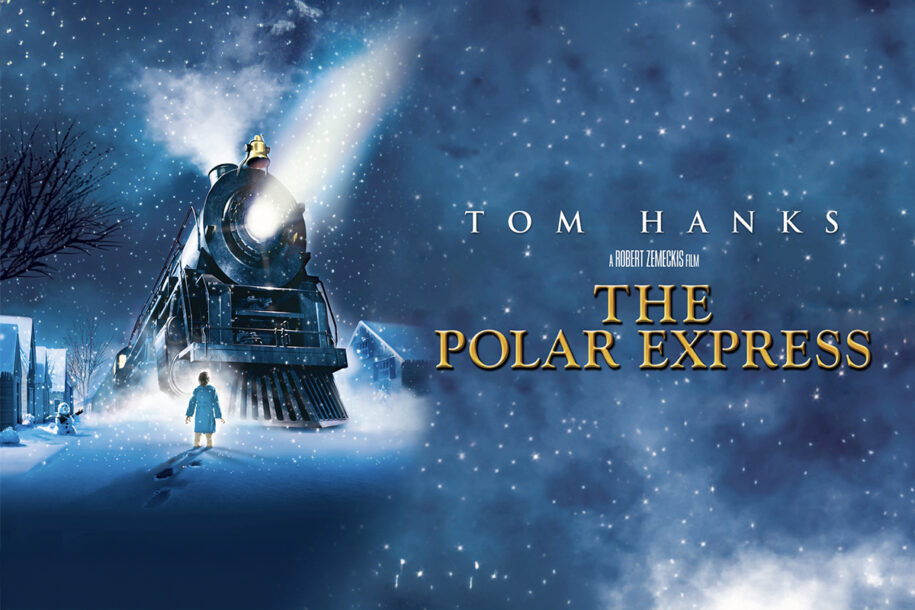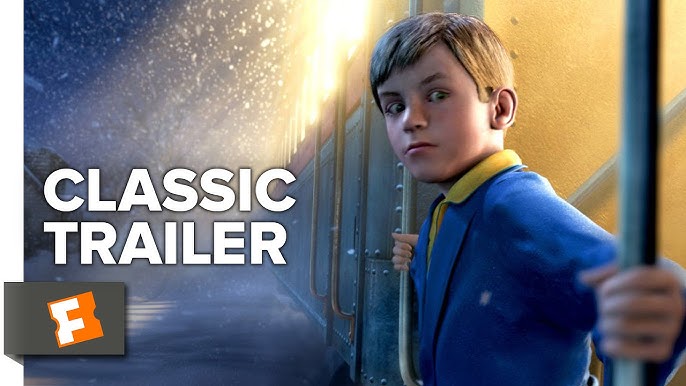The Polar Express (2004)

Related Movies:
Related Movies:
Related Movies:
The Polar Express (2004) – A Magical Journey to the North Pole
The Polar Express (2004), directed by Robert Zemeckis, is a heartwarming and visually stunning animated film that has become a holiday classic. Based on Chris Van Allsburg’s beloved children’s book of the same name, the film tells the story of a young boy who embarks on a magical train ride to the North Pole on Christmas Eve, discovering the power of belief and the magic of Christmas.
Plot Overview:
The story begins with a skeptical young boy (voiced by Daryl Sabara) who no longer believes in Santa Claus. As he lies awake on Christmas Eve, he is suddenly awoken by the sound of a train pulling up outside his home—the Polar Express. This magical train, which can only be seen by children who still believe in the spirit of Christmas, is on its way to the North Pole.
The boy, along with several other children, boards the train and embarks on a spectacular adventure filled with wonders, challenges, and encounters with mystical creatures. Along the way, the boy learns important lessons about belief, friendship, and the true spirit of Christmas. Guided by the mysterious and wise Conductor (voiced by Tom Hanks), the boy finds that the magic of Christmas is not about material gifts, but the power of belief and the joy that comes with giving and sharing.
As the Polar Express nears the North Pole, the boy faces a final test of faith, culminating in a heartwarming moment that reaffirms the magic of the season.
Themes:
The Polar Express explores timeless themes that resonate with audiences of all ages:
-
The Power of Belief: Central to the story is the theme that belief in something greater than ourselves, whether it’s Santa Claus, magic, or the goodness of the world, can bring joy and wonder. The boy’s journey on the Polar Express represents his path to rediscovering the magic of Christmas and, more importantly, his belief in the impossible.
-
Childhood Wonder and Innocence: The film highlights the pure, untainted perspective of childhood, where the impossible feels possible, and everything is filled with magic. The childlike wonder is essential in allowing the characters to experience the magic of the world around them.
-
Friendship and Kindness: Throughout the journey, the boy meets other children who, like him, have their own struggles with belief and hope. Their shared adventure fosters friendships and teaches them the importance of kindness, trust, and supporting one another.
-
The Spirit of Christmas: Ultimately, The Polar Express celebrates the essence of Christmas—not just the gifts, but the spirit of generosity, love, and togetherness that the holiday represents.
Animation & Visuals:
One of the most remarkable aspects of The Polar Express is its groundbreaking animation, which utilizes motion capture technology to create a hyper-realistic, yet magical, world. The film’s visual style perfectly captures the dreamlike nature of the story, with vibrant colors, whimsical designs, and a stunning recreation of the North Pole. The train itself, with its gleaming tracks and ethereal glow, becomes a central symbol of the magic and mystery of the holiday season.
The snowy landscapes, the twinkling lights of the North Pole, and the wondrous visuals that fill the screen all contribute to the film’s sense of wonder. While some critics have commented on the “uncanny valley” effect—where the characters’ facial expressions can seem slightly unnatural—the overall look of the film still stands as a visual triumph.
Voice Cast:
The voice cast of The Polar Express is led by Tom Hanks, who plays multiple roles, including the Conductor, the narrator, and other key characters. Hanks’ versatile performance adds depth and charm to the film, embodying the spirit of adventure and wonder. His warm and authoritative voice makes the Conductor an endearing and memorable character, guiding the children on their journey.
Other notable voice performances include Daryl Sabara as the young boy, Nona Gaye as the Girl on the Train, and Eddie Deezen as the know-it-all Lonely Boy. Each voice brings a unique flavor to their respective roles, helping to capture the diverse personalities of the children on the train.
Music & Soundtrack:
The soundtrack of The Polar Express is another key element that elevates the film. Composer Alan Silvestri, known for his work on other Zemeckis films like Back to the Future, creates a sweeping and emotive score that beautifully complements the visuals and themes of the film. The score evokes a sense of wonder and adventure, adding to the magical atmosphere of the Polar Express journey.
The film also features the iconic song “Believe,” performed by Josh Groban. The song has become synonymous with the movie and is a perfect encapsulation of the film’s theme about the power of belief. Its uplifting and emotional tone adds to the film’s heartwarming conclusion.
Legacy and Cultural Impact:
Since its release in 2004, The Polar Express has become a beloved holiday tradition for many families. Its themes of belief, magic, and the Christmas spirit resonate with both children and adults, and its unique animation style has made it a visual milestone in animated filmmaking.
The film’s popularity has led to a range of merchandising, a popular holiday train ride experience in several locations across the world, and an enduring place in holiday movie marathons. Its message of hope, kindness, and the importance of keeping the Christmas spirit alive makes it a timeless addition to holiday film history.
Conclusion:
The Polar Express (2004) is a heartwarming, magical journey that captures the wonder of the holiday season. With its stunning animation, memorable voice performances, and emotional storytelling, it continues to inspire audiences with its message about the power of belief, the joy of Christmas, and the enduring magic of childhood wonder.
This film remains a holiday classic, a reminder that the true magic of Christmas lies not in the presents, but in the belief and love shared with others











